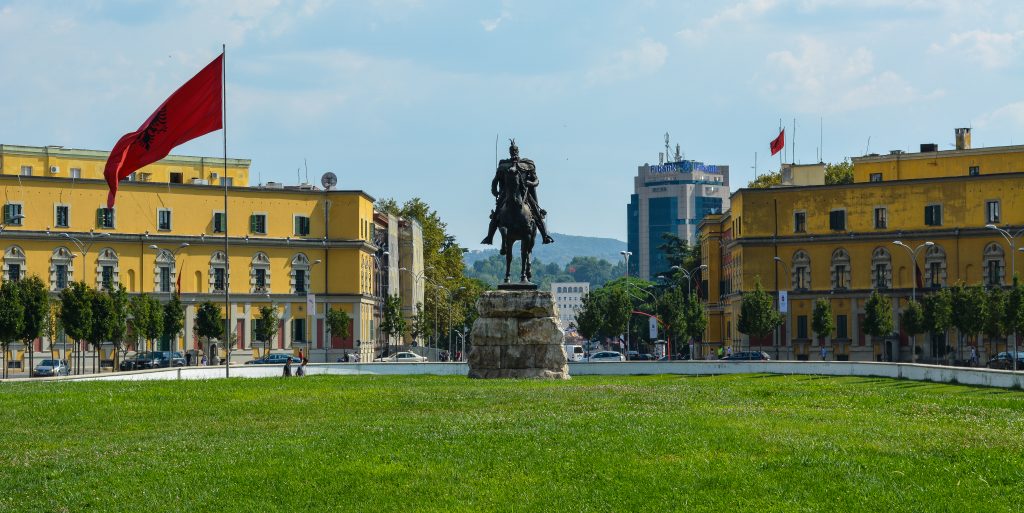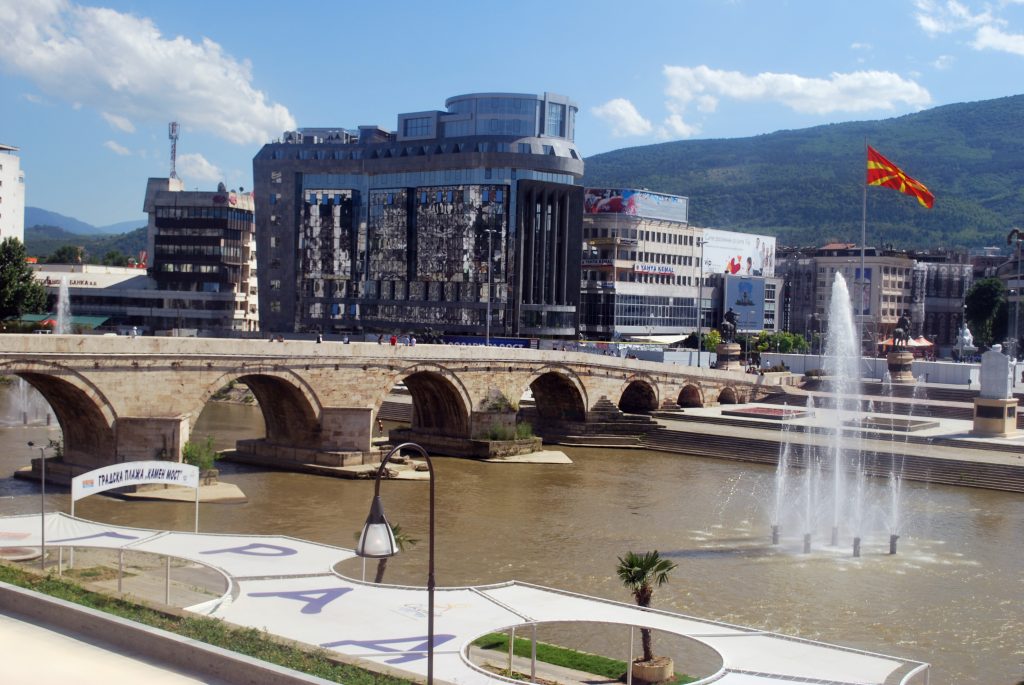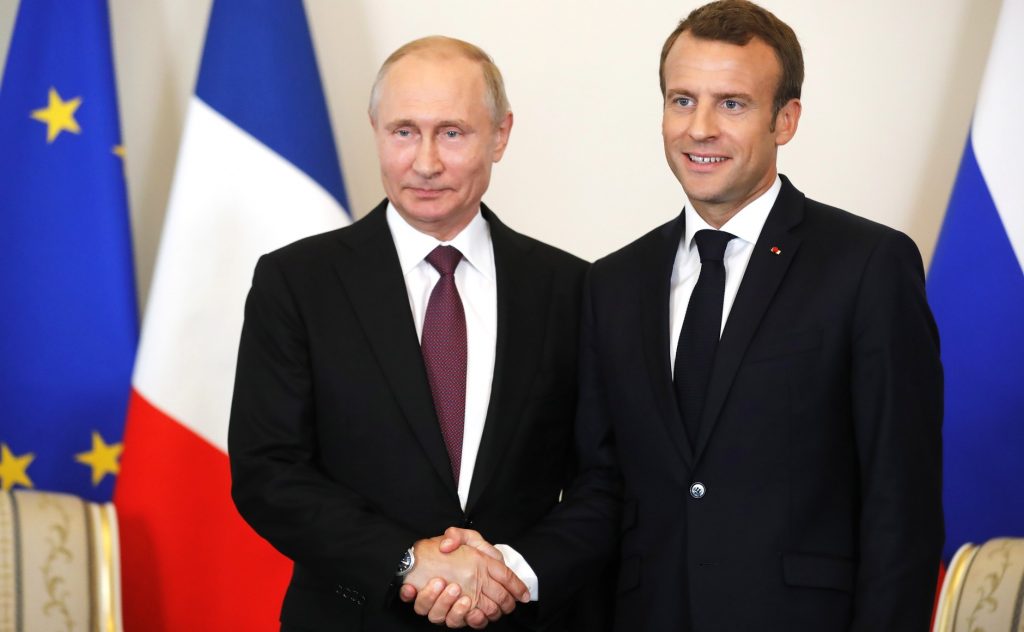Since the fall of the Berlin Wall, both European and US leaders had recognised that an orderly expansion of the European project is key to European peace and prosperity; French president Emmanuel Macron’s decision to block Albania and North Macedonia’s EU-membership bids has brought a symbolic end to the post-1989 era, writes Christopher R. Hill, a former US Assistant Secretary of State.
Since the fall of the Berlin Wall 30 years ago, Western leaders have consistently maintained that there are no problems on the European continent that cannot be addressed through engagement with the European Union or an expansion of the European project. But that longstanding outlook seems to be changing, owing to a combination of internal EU woes and American indifference.

It may seem awkward that the United States would encourage membership in someone else’s club in the first place. But from its leadership position within NATO – the premier European security organisation – the US has always been supportive of European efforts to consolidate political and economic unity on the continent. And the EU, for its part, has recognised that membership in the bloc is a logical aspiration for the post-Soviet countries on its periphery. While deepening and enlarging the structures of the EU has proved to be more difficult than many US observers realised, European leaders have soldiered on, not least because that is what was expected of them in the context of post-Cold War history.
But the European Council’s recent meeting on 17-18 October provided confirmation that something has changed: French president Emmanuel Macron made the fateful decision to block EU accession talks with Albania and the Republic of North Macedonia. With the United Kingdom leaving the EU and German chancellor Angela Merkel retiring from politics, Macron is the heir apparent to European leadership. But his reasoning on the question of EU expansion is opaque. Many, even in the conspiracy-minded Balkans, assume that Macron simply has no appetite for the difficult process of taking on two more member states from a still-troublesome region, given the internal challenges already facing the EU.

Disappointment over Macron’s decision
Still, the disappointment – even anger – over Macron’s decision is palpable in Tirana and Skopje (the Albanian and North Macedonian capitals, respectively). North Macedonia, after all, just finished changing its official name in order to placate Greece, which had been vetoing its membership on the grounds that its name was too similar to the Greek region of Macedonia. Meanwhile, Bulgaria, another EU member, has also frustrated North Macedonia’s efforts, accusing the Macedonians of claiming Bulgarian national heroes as their own and demanding that they amend their history books.
Faced with these demands and struggling with the legacy of corruption left by his predecessor (who has, oddly, now found “asylum” in Hungary), North Macedonia’s relatively new, inexperienced prime minister, Zoran Zaev, concluded that his country urgently needed to get into NATO and the EU. He rammed through the long-sought name change, normalised relations with Greece, placated the Bulgarians, and applied for membership. He knew that the name change did not poll well, that many Macedonians saw it as a humiliation that could be justified only by EU accession. But, because both NATO and the EU had singled out the name dispute as the main hurdle to membership, he and the Macedonian public had high hopes for gaining admission to both organisations.

For its part, NATO has followed through. Although some members still need to approve, the Republic of North Macedonia is expected to become a full NATO member at the alliance’s December summit.
But the EU accession process has been much slower. Macron, who has said very little on the subject, seems to be worried that continuing enlargement of the bloc will make reforming its governance structures more difficult. But by slamming on the brakes, he has put Zaev in a precarious position. North Macedonian voters, their hopes dashed, will return to the polls for a general election in April.
America and Europe have a duty
In the past, one might have expected the US to step in. But in the context of US president Donald Trump’s largely unformed foreign policy, the plight of small, distant countries like North Macedonia and Albania barely registers. Of course, it is possible that Trump has tired of the French president’s star power and is welcoming the recent criticism of him with a sense of schadenfreude. It is also possible that Trump doesn’t want Albania and North Macedonia to join the EU. But, most likely, he simply has no idea what is happening in the Western Balkans.
Just a few years ago, the US doubtless would have been working with the EU to facilitate the accession process for both countries. While EU membership would not solve their problems, it would help to address institutional weaknesses, and it would signal to an increasingly revanchist Russia that the geopolitical game in the Balkans is coming to an end. Given the trauma the region has suffered over the past 25 years, America and Europe have a duty to fulfil the promise of the post-Cold War era.
Cover: The French president, Emmanuel Macron, with his Russian counterpart, Vladimir Putin. Photo: the Kremlin. The opinions in this article are those of the author.

